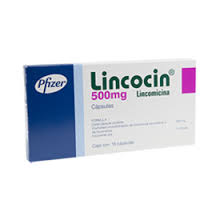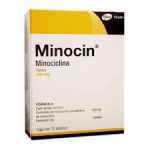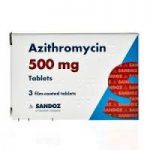Description
Lincocin is a brand name of Lincomycin which is used to treat infectious diseases. This medicines belongs to a group of lincosamides. The antibiotics of this group are not popular but if other drugs are ineffective, they help to treat the severest infectious diseases.
The peculiarity of Lincocin is a bacteriostatic or bactericidal action depending on the concentration on the blood plasma and irritability of microorganisms.
In low doses, Lincocin provides a bacteriostatic action and prevents bacteria from growing. In high doses, Lincocin shows a bactericidal action and completely destroys the cells of bacteria, and there no chance for the infection relapse will be left.
Lincocin may be used in the treatment of many infectious diseases: sepsis, osteomyelitis, pneumonia, lung abscess, empyema, skin and soft tissue infections, staphylococcal infections, etc. If a patient has allergy to penicillin and cannot take them, Lincocin may be used.
Pharmaceutical form
Lincocin is released in the form of capsules, pills, and solution for the intramuscular administration. A medical dose is selected individually depending on the form of the disease and site of the infection.
How to take Lincocin?
The peroral doses of Lincocin are used one hour before meals, or 2 hours after meals. Capsules/pills of Lincocin should be taken with a full glass of water for better uptake.
[tie_list type=”checklist”]
- Adult patients are recommended to take Lincocin 500 mg 2-3 times per day. If severe course of the infection, the maximal daily dose 2 g may be used (1 capsule/pill of Lincocin 500 mg 4 times per day).
- Children are prescribed Lincocin in the dose of 30-60 mg per 1 kg of the body weight per day, 3 times.
- The length of the treatment is 7-14 days depending on the form and severity of the disease. If prolonged infectious inflammatory processes, the treatment may last for 3 weeks.
[/tie_list]
Precautions
[tie_list type=”checklist”]
- Lincocin is not prescribed patients with renal or hepatic failure, because the patients of this group have poor intolerance of this antibiotic.
- Children under 3 months, women during pregnancy and lactation are not recommended Lincocin.
- The functions of kidneys and liver should be controlled during the prolonged treatment.
- Do not take Lincocin with ampicillin, erythromycin, theophylline, heparin, and barbiturates.
[/tie_list]
Probable side effects
According to data of the medical studies, the frequency of the side effects has not exceeded 6% during the use of Lincocin in therapeutic doses. Patients often feel the following side effects: nausea, vomiting, diarrhea, low blood pressure, and dizziness.
In case of the prolonged treatment, the level of liver transaminase can be increased, and candidiasis may occur. It is necessary to use antifungal drugs to prevent candidiasis during the treatment.
Stop taking Lincocin during the appearance of the skin allergic reactions.
How to buy Lincocin?
Curiously enough, it is almost impossible to buy cheap Lincocin in the regular pharmacy. The cost of Lincocin is overpriced in the community pharmacies because it includes expenses for transportation, taxes, and pre-sale preparation. Buying Lincocin in the city pharmacies, you will overpay.
You have an opportunity to buy Lincocin at the cost of a manufacture in the online pharmacy. The supply of Lincocin online happens directly from the warehouse of the manufacturer, and therefore you do not have to overpay for the taxes and expenses for the pre-sale preparation.
Cheap Lincocin online is for sale without prescription, and therefore you can buy this antibiotic 24/7 at any convenient time. The shipment of Lincocin online is made to any country.




